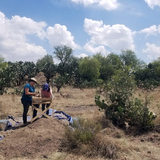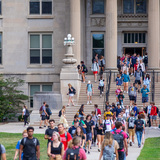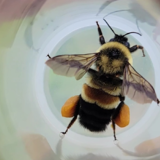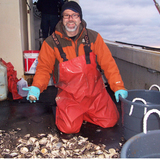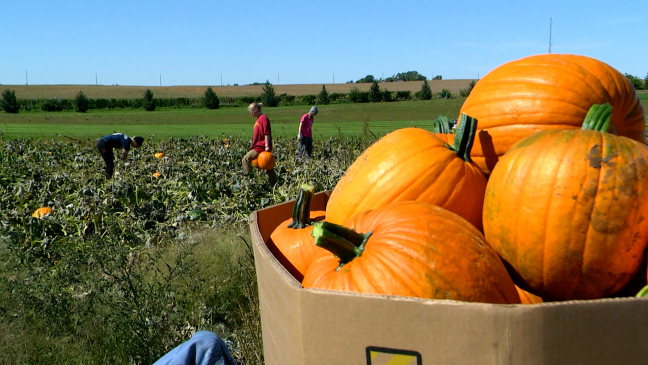News Archive
Thursday, October 6 2022
-
Iowa State University honors Jack Trice with year-long centennial commemoration
Iowa State will honor Jack Trice with a year-long centennial commemoration, including a new sculpture, a new name for a street and special lectures and events. The commemoration “will honor Iowa State University’s first Black athlete, but it will also shine a light on what Jack Trice accomplished when he wasn’t in uniform,” said Toyia Younger, Iowa State’s senior vice president for student affairs and chair of the university’s commemoration committee.
-
CDC grant spurs research for fall prevention
With a $1 million grant from the CDC, ISU researchers and community partners will be the first to directly evaluate a walking program’s potential for reducing the risk and incidence of falling, which is the leading cause of injuries among people aged 65 and older in the U.S.
-
ISU lab aims to repair severed nerves, foster undergraduate research
Undergraduate students at ISU are part of a research team testing different structures that could be used to help patients recover from traumatic nerve injuries.
-
$80 million grant aims to make regenerative farming practice a moneymaker for farmers
An Iowa State University research team is part of an $80 million federal grant to show how generating renewable natural gas from cover crops and prairie grass could give farmers a market-based motivation to use conservation practices that sequester carbon dioxide and improve water quality.
-
Search for clues may explain the collapse of ancient city in Mexico
Faculty and students from ISU joined an international team of archaeologists this summer to begin excavating one of Teotihuacan’s suburbs. The four-year project could help unlock clues about the ancient city’s mysterious collapse and what happened in the hundreds of years before Spanish conquistadors arrived in central America.
-
Researchers test hybrid, soft/hard nanocarriers to deliver drugs to the brain
Iowa State and Nanovaccine Institute researchers are working to develop nanocarriers that deliver drugs across the blood brain barrier, a high hurdle created by the body to protect the brain from pathogens. Successful nanocarriers could lead to treatments for brain disorders including Alzheimer's disease, Parkinson’s disease, ischemic stroke, epilepsy and seizures.
-
Iowa State unveils CYTown plans
More than half a century after the first Iowa State Center building opened, Iowa State University is proposing an innovative plan to reimagine its landmark educational, cultural and athletic complex – a development that will create CYTown, a community destination spot to be built between Jack Trice Stadium and Hilton Coliseum. CYTown will capitalize on its unique location to attract more visitors to the Iowa State and Ames communities, spur economic growth and afford new amenities.
-
Students come to Iowa State for opportunities, community
Iowa State’s total fall enrollment of 29,969 includes 25,241 undergraduate, 4,094 graduate and 634 veterinary medicine students, and students from all 99 counties, all 50 states and 114 countries. While overall enrollment is down, first-year students increased 6.3% over last year, and 13% over two years.
-
Researchers find rare and endangered bumble bees in Iowa
A team of researchers at Iowa State University are part of a multi-state effort to map out where the federally endangered rusty patched bumble bee lives, identify what habitat it prefers and collect clues about the population’s genetic diversity and overall health. The findings, along with data about the threatened American bumble bee, could help wildlife managers and land stewards reverse their decline and support other pollinators more broadly.
-
Study shows Gulf of Maine cooling for 900 years, then quickly warming since late 1800s
Researchers combined a marine history based on geochemical information in clam shells with thousands of computer simulations to determine that centuries of cooling in the Gulf of Maine suddenly reversed in the late 1800s. The researchers' climate models say greenhouse gas emissions have been a major driver of the warming in the Gulf of Maine.




